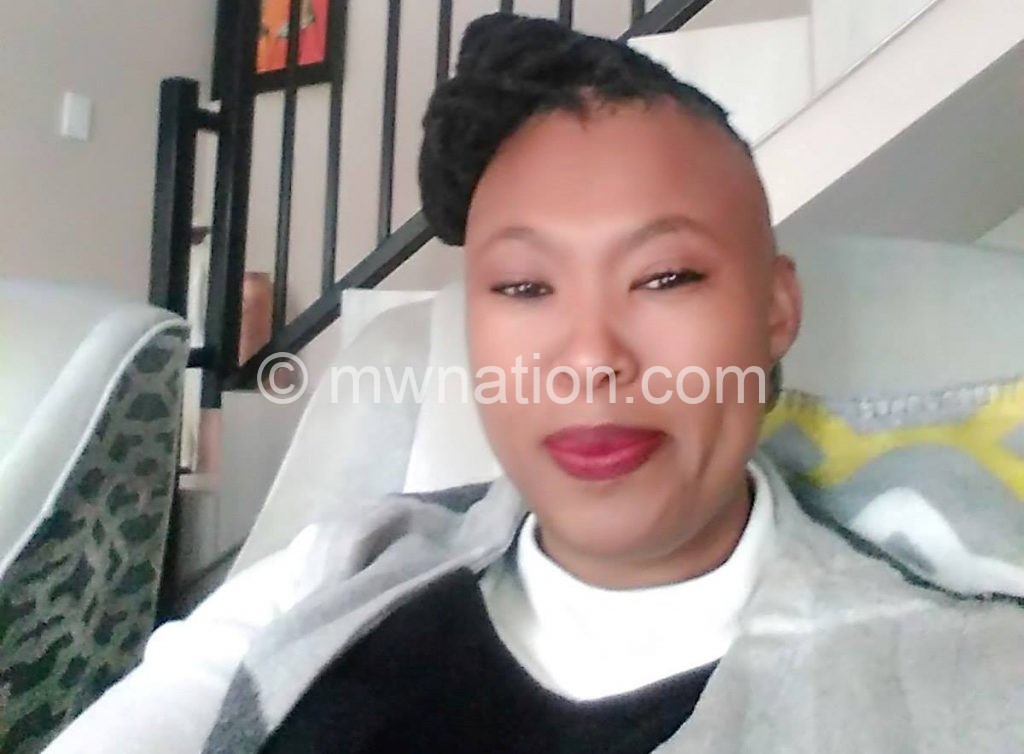Dineo Mkwezalamba: Founder Of Dzuka Africa
Born on 16 February 1977 in Pretoria, South Africa, Dineo Mkwezalamba is a social entrepreneur — the founder of Dzuka Africa.
This is a non-profit organisation based in Blantyre, aimed at empowering youth and women with life and professional skills so that they are employable for entry level jobs.

It is equally there to build resilient and sustainable businesses through its various programmes such as internship, entrepreneurship and mentorship.
Established in 2015, Dzuka Africa has to date established three business incubation hubs in the country, which include Dzuka Start-up Hub Blantyre, Dzuka Start-up Hub Limbe and Amayi House – Home of Creatives in Chilomoni.
Mkwezalamba, the second born of four children in her family, says her motivation to start up Dzuka Africa was to help create platforms for emerging entrepreneurs to start robust start-ups.
She believes that in Malawi, with less than 12 percent of the population having access to electricity, industrialisation becomes a big challenge as cost of operation becomes very high.
This, she observes, leaves everyone with an opportunity to create small to medium enterprises (SMEs) to boost the economy.
“Dzuka Africa Organisation was established to help create platforms for emerging entrepreneurs to start resilient StartUps by giving them the opportunity to have access to co-working space, entrepreneurship training to gain business acumen and equal opportunities to network and access markets as well as financial support,” she explains.
Among other objectives, Dzuka Africa is geared at creating a new employment market, offer skills development and youth empowerment, as a way of bridging the gap between job creation and idle minds to eliminate unemployment in the long run.
It is also aimed at assisting the youth in their personal and social development to encourage growth in self-esteem and confidence and help them learn from their experience and cope with positive and critical feedback.
So far, 147 business entities have been incubated from the three hubs and they have created an entrepreneurs’ co-working space in the country through Blantyre Entrepreneurs Hub, Limbe Entrepreneurs Hub and Amayi House.
Apart from that, Dzuka Africa has also had 24 Entrepreneurs Pitch Nights to date and trained 590 community day secondary scholars in entrepreneurship.
“We have also had SME’s StartUp workshops — from idea to bankable businesses and from concept to cash generating business workshops where 200 business owners have been trained,” she explains.
The initiative has also seen 120 women empowered; over 150 young entrepreneurs coached in business and 201 Commonwealth Businesswomen Malawi Chapter registration in 21 sectors, among other things.
Thoko Kadewere is one of the young women that have used Dzuka Africa’s various programmes to their advantage.
She testifies that one of the trainings she went through opened her eyes to the ability to conceptualise her business idea.
“It is easy for us to have an idea, but not be able to do anything about it. Before I went through the training, I would always say that I want to own a magazine one day, but had no idea how I would go about it.
“After the training, I was able to conceptualise the business and later execute the business idea. It helped me to put my ideas into perspective,” explains Kadewere, who is all set to launch her magazine later this month.
Hers is a digital advertising magazine known as Elysian Magazine which will help companies and other businesses in advertising their products and services and be able to grow them.
But despite all the success stories, there are also many challenges facing the effective execution of Dzuka’s work.
For instance, Mkwezalamba points out that emerging entrepreneurs have limited interest to invest in their business acumen to enable them to operate their businesses.
She further notes that there are also difficulties in getting financial aid to invest in emerging entrepreneurs at seed/development stage; high rental fees and there is little private sector buy-in – in investment of incubation hubs.
But while the challenges are there, her eyes are still set on the finishing line where through partnerships, they wish to establish a total of 10 incubation hubs spread across the southern and eastern regions of the country.
“The incubation hubs will help create platforms for emerging entrepreneurs to test their business ideas and gain the business acumen needed to operate their business and build resilient StartUps,” the mother of three girls says.
As a social entrepreneur striving to create jobs, Mkwezalamba is optimistic about economic growth, arguing that Malawi is a blessed country with arable land and skilful people.
She also observes that there are so many opportunities in the country to grow if everyone decides to have collaborative spirit.
Best described as loving, full of faith and a dreamer, she has some ambitious plans to raise one million youth entrepreneurs — 70 percent of them being women — by 2025.
They also plan to train 3 000 youth in digital skills by 2025, incubate (nurture) 1 000 start-up businesses for the youth and facilitate funding of 1 000 businesses for youth for business expansion in the next five years.
Mkwezalamba is an economist by profession, trained at University of South Africa who was raised by a mother who is an academician and a father who was the first black accountant to work for Sanlam in South Africa where she is originally from.
She is married to Harold Mkwezalamba, and together they have three daughters Oreneile and twins Jayden and Jordana.





